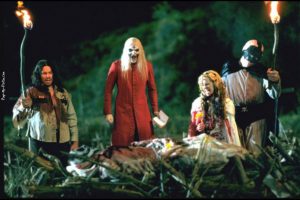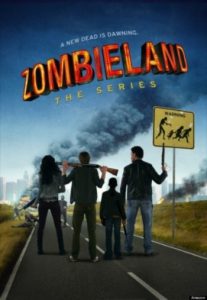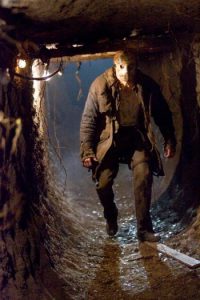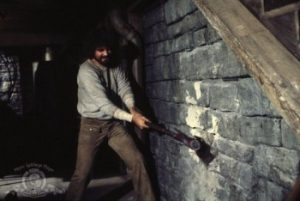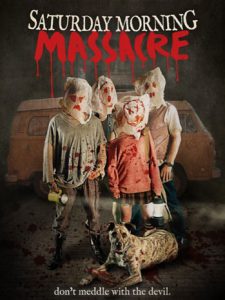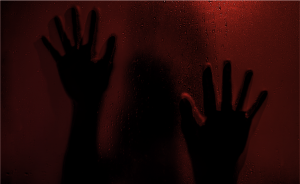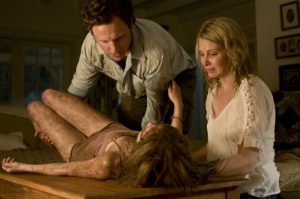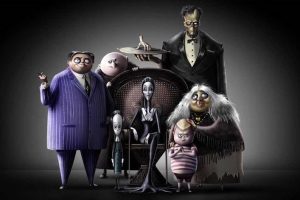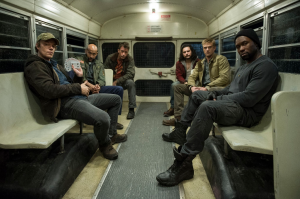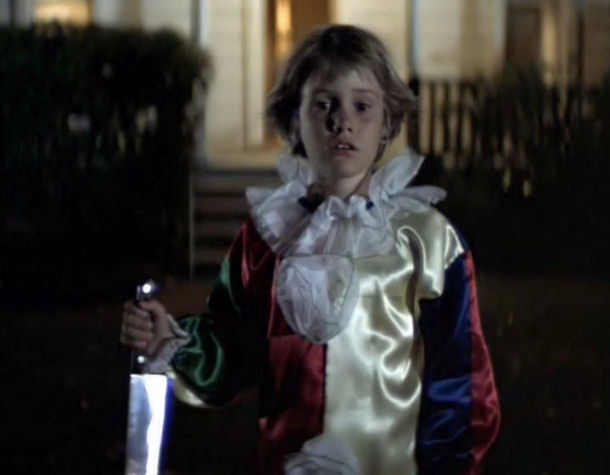
4 Reasons Horror Has the Best Directors in Hollywood
Horror gets a bad rap. As a fan of the genre, you probably already realize this. Non-aficionados throw out wild accusations like “It doesn’t take any talent to make a horror movie. Anyone can do it!” or “All you care about in a movie is blood and boobs”. Okay, for some of us, that last complaint might be true. But the point remains that every person who isn’t one of us tends to be against us, accusing our beloved genre of being nothing but schlock.
However, on closer examination, horror films often manage to be the most cutting-edge exports of Hollywood, and the auteurs that helm them often prove the greatest visionaries in cinema. This is not the domain for the faint of heart. Instead, horror attracts minds that are equal parts iconoclastic, intellectual, and fun-loving.
In case you need talking points to convince the unwashed non-genre lovers in your life, here are four reasons that horror has the best directors in the business. Romantic comedies and Oscar-baiting dramas will seem lamer than ever.
Scares
Any schmuck can elicit emotion. Post a picture of a dog or cat online with the caption “The vet just gave Fluffy or Fido two weeks to live”, and you’ll have people short-circuiting their keyboard with tears. In fact, just typing that sentence made me sad, and as far as I know, there are no proverbial pets on death row.
Horror, however, aims for something more primordial than just any generic feeling. Fear reaches beyond a jolt or a shiver—it’s inherent in who we are. People who eschew horror tend to disregard or deny their own mortality. It’s too scary to face, so they just ignore it. Genre fans, on the other hand, embrace it. We like to be scared, in part, because it allows us to face the greatest question mark humanity can imagine. And not only do we confront our deep-seated dread, we get to survive the last reel.
Now granted, plenty of movies go for the easy “jump out and say boo” scares. Those are essentially equivalent to those aforementioned terminal animal memes or that dastardly Sarah McLachlan ASPCA commercial. The horror films that endure, however, slice down to the marrow of who we are and what we fear. John Carpenter’s Halloween and Tobe Hooper’s Poltergeist brought a dangerous supernatural element into suburban America, a place where we raise families and think we’re safe. The Thing, either the original or Carpenter’s remake, wraps claustrophobia around the unknown, thereby combining two frights that as a species, we’ve long harbored. Wes Craven’s The Hills Have Eyes or Hooper’s other classic, The Texas Chain Saw Massacre, inspire us to lock our doors on long road trips through bucolic landscapes, terrified the ordinary farm in the distance might hide a dangerous and slaughtering secret. None of these fears are new, but our ability to tackle them through film makes us realize we’re not alone in our trepidation.
Along with squeamish audiences, even so-called cinema scholars often discount horror as plucking the low-hanging fruit, but this couldn’t be further from the truth. It’s not easy to unearth the phobias that cut across gender, age, and socioeconomics. But horror directors have been doing the thankless job for nearly a century.

Suspense
If scares have already been covered, then doesn’t that by default include suspense? Eh, not quite. A scare inspires fear, but suspense sets up the terror.
For an exercise in suspense, look to the Master of it: Alfred Hitchcock. Arguably the greatest horror filmmaker of all time—and yes, he is a horror director, not a mere thriller director—Hitchcock reveled in the upsurge of panic. Particularly in his two horror prototypes, Psycho and The Birds, he succeeded in making a shower or a wayward pigeon seem charged with potential dread.
To explore an entirely different but equally indelible director, think about Roman Polanski’s classics, Rosemary’s Baby and Repulsion. Not much happens, but as the tension slowly ratchets up, you can barely resist the thrall of every frame. The outright scares might be minimal, but the horror is undeniable.
Suspense can keep the audience glued to the screen, and that helps to set horror apart. It’s easy to turn off a drama. It’s not difficult to pause a comedy. And even mystery, a genre that builds its reputation on so-called suspense, can rarely compare to the tension build-ups that dominate horror. In our genre, the stakes are almost always greater and the threats nearly insurmountable. So straight-up scare or not, the anxious expectancy is enough to maintain the hand-wringing, nail-biting fun.
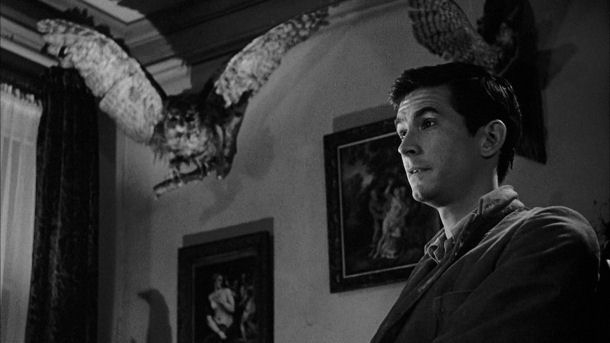
Style
Since the dawn of celluloid, horror has always claimed its stake. From Tod Browning and James Whale to Jacques Tourneur and F. W. Murnau, early directors recognized the commercial and artistic viability of the scary movie. And even in the first few decades of cinema, when most studios preferred quantity over quality (and really, what’s changed?), each of those four auteurs developed a unique visual fingerprint. Compare Browning’s Freaks or Dracula to Whale’s Bride of Frankenstein or The Old Dark House. Or hold Murnau’s Nosferatu and Tourneur’s Cat People up to the light. These films may all share the horror title, but none of them looks anything like the others.
These visual film elements result from complex on-set collaborations. To create a truly stylist movie, there must be top notch cinematographers, set designers, costumers, makeup artists, and lighting designers. The Overlook Hotel, for example, wouldn’t be the same without the carpet, the color saturation, or the general eerie glow. And though a director can’t claim sole responsibility (though Kubrick probably tried), he (or she) is the one who must interpret the script and give advice to all involved to ensure the final cut doesn’t fall flat.
Of course, there are plenty of horror movies out there that are visually boring. Those films likely employ a cat at some point and have it leap toward the camera to scare people. That trope is usually a dead giveaway that you’re not watching a master at work.
But for every hack, there’s an Argento, a Lynch, or a Bava to even the score. In fact, name a director from any other genre who conveys comparable style to those three. And many of today’s most respected masters, such as Steven Spielberg or Peter Jackson, have produced at least one token scary movie. For great filmmakers, horror is practically a rite of passage. You can’t call yourself legit until you’ve mastered the most mercurial of mediums.
Even when they’re not producing conventionally pristine films, horror directors push the envelope. Ask Roger Corman, George Romero, or Sam Raimi. Their movies might not look like David Lean epics, but decisively raw and visceral energy permeates every entry in their filmographies. I, for one, will take that undeniable vigor over glossy homogenization any day.
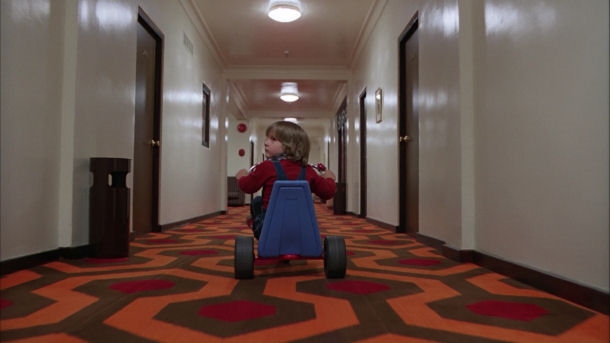
Substance
In horror, everything’s a metaphor. Okay, maybe not everything—even Freud would probably say a topless scene is just a topless scene. But if a filmmaker wants a certain aspect of terror to represent something more cerebral, then it’s not difficult to do. Ghosts, vampires, werewolves, and witches have long represented more fundamental aspects of our nature, from brimming sexuality to unchecked rage.
But beyond the obvious allegories, horror can explore the human condition when no other genre can. David Cronenberg has discussed how his 1986 remake of The Fly couldn’t have gotten made if it was about a real disease. He needed to use the mad scientist-gone-wild backdrop to render the story more palatable to both the studio and the audience. And what if Romero’s Night of the Living Dead was a straightforward narrative about the tumultuous sixties or Dawn of the Dead conveyed commercialism with everyday mindless people at the mall? Not exactly the type of movie material that endures.
Instead, horror tackles the issues no one else wants to broach or examines the mundane aspects of life we all know are there but aren’t really interested in watching in an unveiled form for two hours. A good horror film—nay, a great horror film—forces us to look within and recognize our internal Jack Torrance, Seth Brundle, Carrie White, Ellen Ripley, or Lori Strode. We can be mad, we can be strong, and we can be terrified. Horror appeals at once to our collective human flaws and to our individual fears. The genre manages to be everything, all wrapped up in a gory ninety-minute package.
And to think: those horror-hating naysayers are missing out on the transcendence.
So those are my four alliterative reasons why horror directors are the best in Hollywood. What reasons did I leave off the list? Let me know in the comments below!



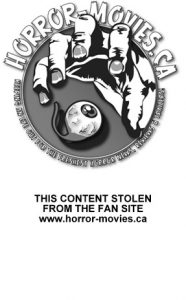
![Best Indie Horror Films [ Part 2 ]](https://www.horror-movies.ca/wp-content/uploads/2021/04/absentia-610x343-2-300x169.jpg)
